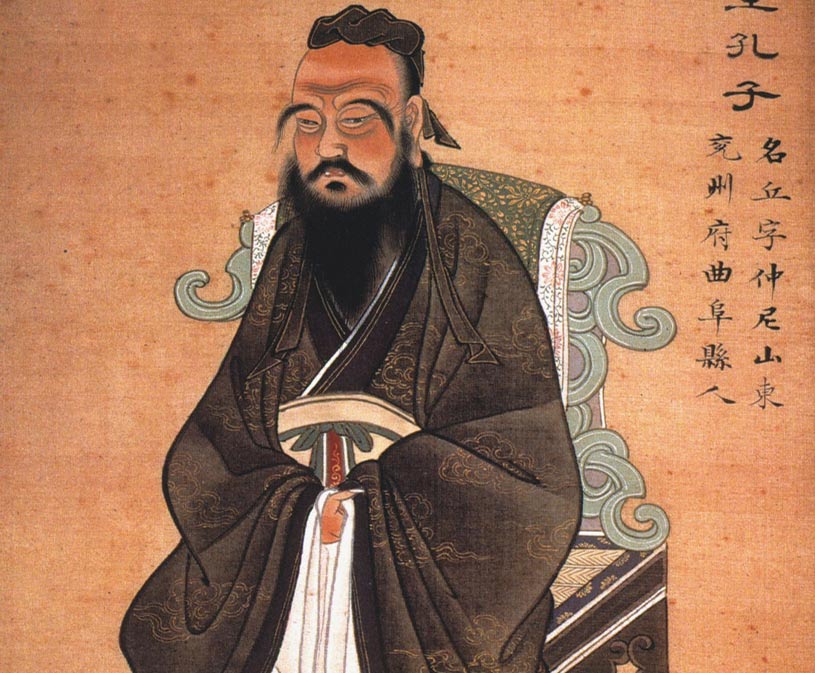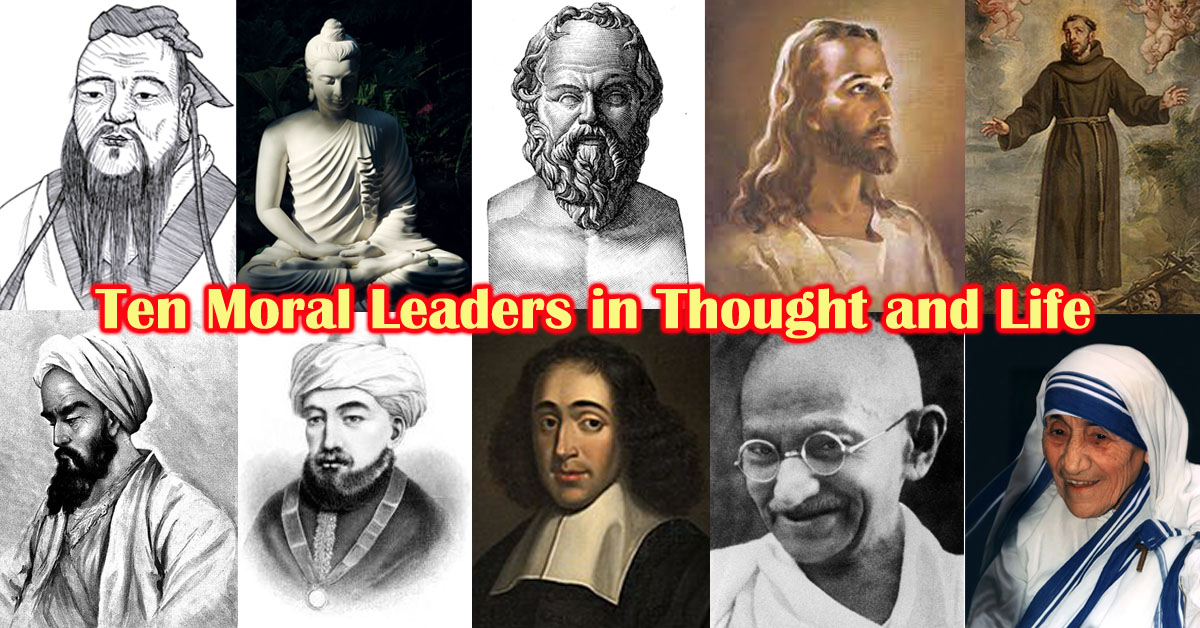Dr Saheb Sahu
Introduction
Will Durant (1885-1981) spent more than fifty years writing his critically acclaimed eleven volumes, The Story of Civilization, published by Simon and Schuster. He was awarded the Pulitzer (1968) and the US Presidential Medal of Freedom (1977). Durant was passionate in his quest to bring philosophy out of the ivory towers of academia and into the lives of everyday men and women. His last book; Fallen Leaves was published posthumously in 2014. On the topic of Religion and Morals, he listed Confucius, Buddha, Socrates, Jesus, St. Francis of Assisi, Maimonides, Spinoza, Florence Nightingale and Schweitzer as moral leaders in thought and life. For these series of articles I am dropping Florence Nightingale and Schweitzer from the list and adding al- Razi, Gandhi and Mother Teresa to it.
Definition of Morality
Morality can be defined as principles concerning distinction between right and wrong or good or bad behavior.
Confucius
Confucius (“Master Kong”; c. 551 – c. 479 BCE) was a Chinese philosopher and politician, who is traditionally considered the paragon of Chinese sages. Confucius’s teachings and philosophy underpin East Asian culture and society, remaining influential across China and East Asia to this day.

Confucius was born in 551 BC, in Shantung province, in the kingdom of Lu, China. His father was seventy years old and died when the boy was three. He worked after school to help support his mother; nevertheless he had time to become skilled in archery and music. He married at nineteen and divorced his wife at twenty-three. At twenty-two he began his career as a teacher, using his home as school house and charging whatever modest fee his pupils could pay. He was a strong believer in education. He said,” It is not easy to find a man who has learned for three years without coming to be good”.
He at first had few pupils. But his name spread as a kind and good teacher. At one time, as many as 70 students lived with him. He strongly desired fame and position but he would make no dishonorable compromises to secure or retain them. Again and again he refused appointments to high office from whose government seemed to him unjust. The highest office he attained was the chief magistrate of the town of Chung-tu, which lasted only for three years.
Confucius left behind five volumes apparently written or edited by his own hand and therefore known in China as “Five Ching” or Canonical Books. The Analects, the most known among the Chinese philosophical books, is composed of a large collection of sayings and ideas attributed to Confucius and his contemporaries. It is believed to have been compiled and written by Confucius’s followers. It reached its final form between 206 BC – 220 CE. It is the central text of Confucianism. In the Analects, Confucius presents himself as a “transmitter who invented nothing”. He puts the greatest emphasis on the importance of study. Far from trying to build a systematic or formalist theory, he wanted his disciples to master the older classics.
Confucius’s principles have commonality with Chinese tradition and belief. With filial piety, he championed strong family loyalty, ancestor veneration, and respect of elders by their children and of husbands by their wives, recommending family as a basis for ideal government. He espoused the Golden Rule, “Do not do unto others what you do not want done to yourself”.
Confucianism
Although Confucianism is often followed in a religious manner by the Chinese, many argue that its values are secular and that it is, therefore, less a religion than a secular morality. Proponents argue, however, that despite the secular nature of Confucianism’s teachings, it is based on a worldview that is religious.
Confucian morality
Confucius was an agnostic (a person who believes that nothing can be known about the existence of God). He avoided theoretical questions like God, gods, heaven, hell, sin etc. His passion was morality.
This is the keynote and substance of the Confucian philosophy. Wisdom begins at home, and the foundation of society is a disciplined individual in a disciplined family. His disciple Tsze-loo asked him, “What constitutes the Higher Man?” he replied, “The cultivation of himself with reverential care”. The very basis of a Higher Man’s character is an overwhelming sympathy toward all men. He pays no attention to slander or violent speech. He courteous and affable to all, but does not gush forth indiscriminate praise. He treats his inferiors without contempt and his superiors without seeking to court their favor. He is slow in words and earnest in conduct. He is courteous even to his familiars, but maintains his reserve towards all, even his son. One of his teachings was a variant of the Golden Rule, sometimes called the “Silver Rule” owing to its negative form:
Zi Gong [a disciple] asked: “Is there any one word that could guide a person throughout life?” The Master replied: “How about ‘reciprocity’! Never impose on others what you would not choose for yourself.”
The Influence of Confucius
The influence of Confucius was posthumous, but complete. His philosophy had struck a practical note that endeared it to the Chinese people. Schools sprang up here and there for the teaching of the Master’s philosophy, as handed down by disciples, developed by Mencius. These schools became the intellectual centers of China and kept the civilization alive during centuries of political collapse, much as the monks did during the Dark Ages of Europe that followed the fall of Rome. (Durant)
Source
Will Durant, The Story Of Civilization, Vol -1, Our Oriental Heritage. Simon and Schuster, New York: 1954
Wikipedia.org



